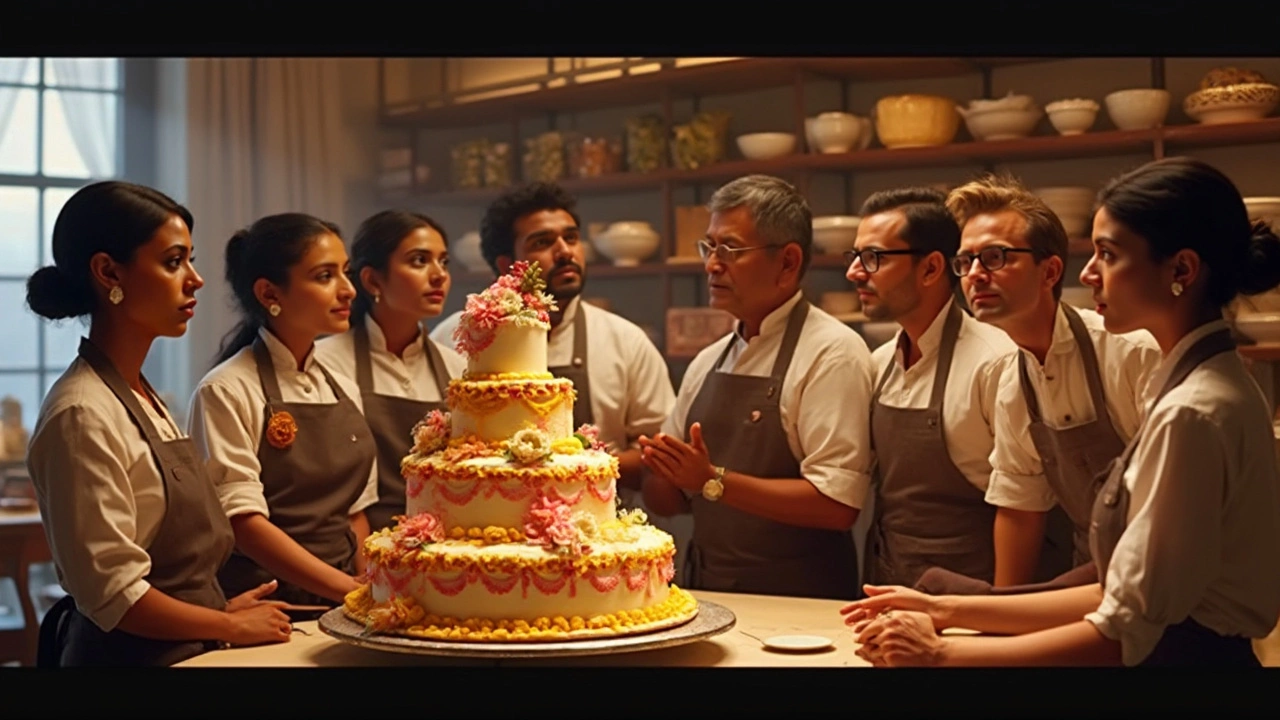
If you hang around a bakery long enough, you might overhear someone drop the term "cake eater"—but it’s not a sweet nickname for someone who loves dessert. In the world of wedding cake makers, being tagged a "cake eater" isn’t a compliment. The phrase drips with a whiff of judgment, and more than a pinch of condescension.
This term usually gets tossed around to describe people who only see the pretty exterior of a wedding cake but haven’t a clue about the hard work and skill that goes into it. It’s sort of like calling someone a poser in the baking world. In some bakeries, it even refers to customers who expect ridiculous discounts or make impossible requests without valuing the craft.
Most folks outside the business have no idea this term even exists, let alone that it could spark an eye-roll or a whispered joke behind the counter. If you’re chatting up a cake maker about your wedding, asking thoughtful questions and showing respect for their process will get you much further than acting like a classic "cake eater."
So, next time you hear the term, don’t assume it’s just about someone who likes a big slice. There’s a story—and a little sting—lurking underneath that icing.
- The Real Meaning Behind 'Cake Eater'
- Where Does This Term Come From?
- Why Bakeries Get Ruffled
- Better Ways to Talk Cake With Bakers
- How Language Shapes Cake Culture
The Real Meaning Behind 'Cake Eater'
So, what exactly is a cake eater in the world of wedding cakes? In bakery talk, the term points at people who focus only on eating and enjoying the cake, without any understanding or respect for the hours of labor, skill, and creativity behind those pretty layers. It’s like calling someone a "freeloader" in a slightly sweeter context, but trust me, it’s still no compliment.
Bakers usually use this phrase among themselves, and it pops up a lot in urban bakeries, especially in cities like New York, Chicago, and LA. It’s common during busy wedding seasons—when some customers treat cake like it’s a fast-food item rather than a handcrafted piece of edible art. A "cake eater" might:
- Ask for lots of free tastings without ever placing an order.
- Request super complex cake designs but balk at quoted prices.
- Downplay the artistry involved in custom cake design.
- Insist on last-minute changes or expect something for nothing.
Some bakeries train their staff to spot these types of customers right away, not because they want to be rude, but because these requests often risk wasting time and expensive ingredients.
If you’re wondering how common this attitude is, a 2022 survey from The Wedding Report (based on nearly 25,000 couples and vendors) revealed that about 14% of wedding cake makers shared stories about customers trying to haggle down prices or acting entitled. That number might sound small until you realize how tight wedding schedules and bakery margins are.
| Type of "Cake Eater" Behavior | Reported by Cake Makers (%) |
|---|---|
| Requesting excessive free samples | 38% |
| Bargaining for major discounts | 44% |
| Dismissing cake artistry | 27% |
| Frequent last-minute changes | 21% |
The next time you’re chatting with a bakery, remember that being respectful of their craft isn’t just polite—it’s a way to make sure you’re truly part of the celebration, not just another "cake eater." It makes the whole experience smoother and, honestly, your cake will probably taste sweeter for it!
Where Does This Term Come From?
So, how did "cake eater" pick up a negative vibe in the world of wedding cakes? Turns out, this phrase has roots outside bakeries. Back in the early 1900s, “cake eater” showed up as American slang. It labeled someone as spoiled, privileged, or even a bit snobby—kind of like saying someone’s used to getting the best slice without lifting a finger. It got popular in movies from the 1920s and 1930s, and later, it even popped up in classic films like "The Mighty Ducks," where being called a cake eater meant you were seen as entitled.
When it comes to the cake eater insult among bakers, it’s not just about fancy tastes. It's about respect—or lack of it. Wedding cake pros borrow the term as a tongue-in-cheek way to grumble about customers who treat bakers like vending machines instead of creative experts. The sting in the phrase is about feeling undervalued or dismissed, especially when someone just wants the “wow” cake at a bargain price.
To really drive home how often slang pops up in bakeries, check this out:
| Bakery Slang | Meaning |
|---|---|
| Cake eater | Person who wants the perks without effort or respect |
| Cake wreck | A failed cake, work gone wrong |
| Frosting snob | Customer picky about icing choices, often dismissive |
| Rush job | Order placed with little notice, causes stress |
The bottom line? The phrase “cake eater” brings a century-old insult into modern bakeries. With wedding cakes, it’s code for customers who just don’t get it—or don’t care to.
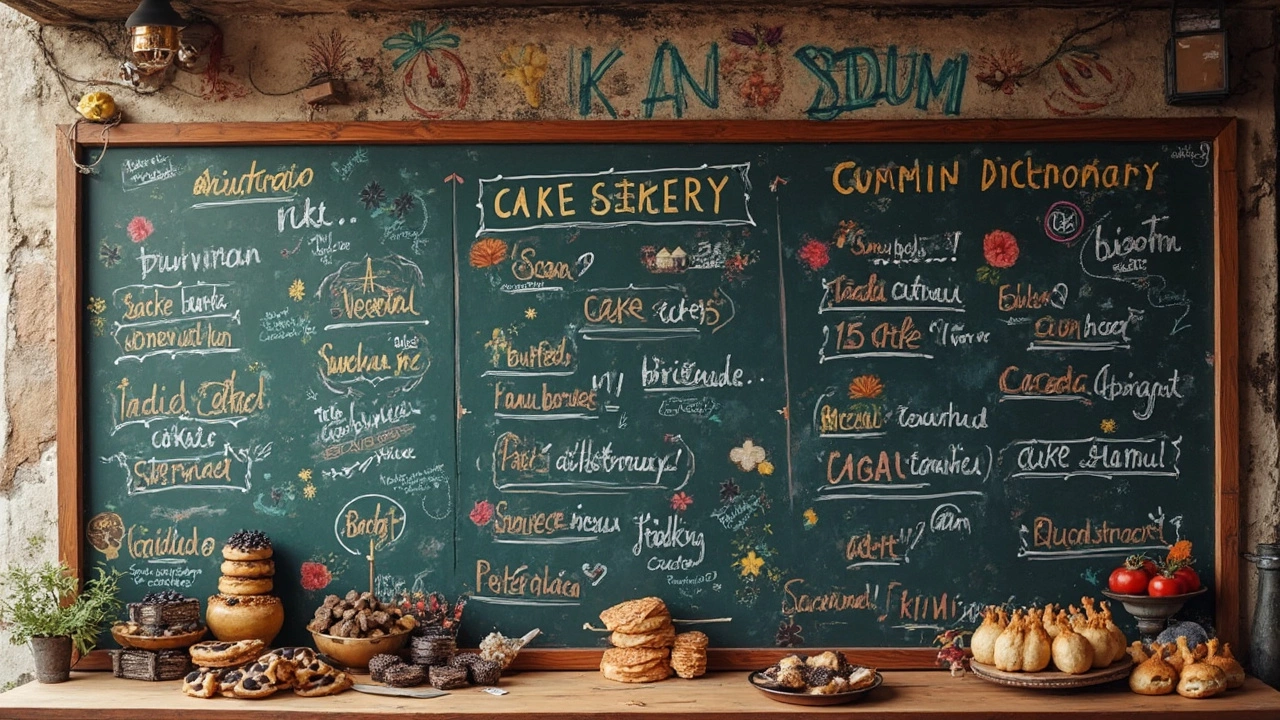
Why Bakeries Get Ruffled
Calling someone a "cake eater" in the wedding cake world stirs up frustration because it suggests they’re clueless or dismissive about what pastry chefs really do. Making a stunning wedding cake isn’t just about tossing some flour and sugar together—there are days of planning, late nights, and high-level skills involved. When people act like this work is easy or ask for complicated designs for dirt-cheap prices, it hits a nerve for bakers who pour their hearts into the job.
This is part of a bigger problem in the food industry: skilled labor often gets undervalued. According to the American Bakers Association in 2023, over 61% of bakery owners said customers underestimated both the cost and time it takes to make custom cakes. And there’s more: wedding cakes usually have a markup because of labor, detailed decor, delivery, and setup. Here’s a quick breakdown to show where the money actually goes:
| Wedding Cake Cost Factor | Estimated % of Price |
|---|---|
| Ingredients | 20% |
| Labor (Baking & Decorating) | 35% |
| Design/Custom Work | 25% |
| Delivery & Setup | 10% |
| Overhead (Rent, Utilities, Etc) | 10% |
This isn’t just about money—it’s respect. Bakers have seen everything from people copying their designs and asking for them cheaper, to guests peeling fondant off the cake and tossing it, treating the artistry as throwaway. This kind of stuff makes being called a cake eater sting even more. The phrase isn’t thrown around lightly; it's a sign a baker feels their skills aren’t being valued.
- Don’t show up last minute demanding a three-tier cake for a budget price.
- Listen when bakers explain why something costs extra—it’s usually because of time or special ingredients.
- If you like a certain design you saw online, ask if it’s reasonable—don’t assume anything is possible for any price.
At the end of the day, wedding cakes are edible art. Treating them—and the people who make them—with a bit of respect goes a long way, both for your cake and your reputation in the bakery.
Better Ways to Talk Cake With Bakers
Most wedding cake makers want to help you create something special, not just another order off the menu. But, there’s an art to chatting with bakers (and not ending up labeled as a cake eater). The vibe you bring to the conversation can decide how smoothly it goes—and what ends up on your dessert table.
Instead of focusing only on Pinterest-perfect photos or tossing out phrases like "Can I get a deal if I say it’s for a wedding?," try asking about how they do their thing. Bakers appreciate when you treat their work like a skill, not a splurge. Here’s what works well:
- Ask about ingredient quality and flavor pairings. A good baker can explain why real buttercream tastes better than the cheap stuff.
- Mention what excites you—like a certain cake style or theme—but keep an open mind to their ideas.
- Don’t expect custom art at grocery-store prices. Custom cakes take time, talent, and hours of work.
- Be honest about your budget upfront. Most bakers want to help you get the best value, not trick you into overspending.
- Show respect for their portfolio. Say what you like, but avoid picking apart designs with negative comments.
Getting on the same page doesn’t have to be stressful. Most awkward moments come from crossed wires—like using the wrong cake size terms or comparing fondant to "play-doh" (that one stings for pros). It’s smart to brush up on a few basics before you meet:
| Term | Meaning |
|---|---|
| Tiers | Separate layers, usually stacked. More tiers mean more servings and higher price. |
| Fondant | Smooth, pliable icing for a clean look. Can cost more than buttercream. |
| Buttercream | Creamy, flavorful frosting. Most popular for taste, but harder to get a flawless finish. |
| Serving Size | The standard portion a slice should be cut. Bakeries use real templates, not just guesses. |
| Tastings | Small samples to sort your favorites. Usually a paid option, but can be credited to your order. |
One survey from The Knot in 2023 showed that 78% of couples who had a sit-down chat with their baker felt "extremely satisfied" with their wedding cake, versus only 42% of those who ordered online without much contact. That personal touch makes a difference—don’t be afraid to ask questions and share your story. Bakers aren’t looking for perfection; they just want to work with folks who see the cake as more than just a prop.
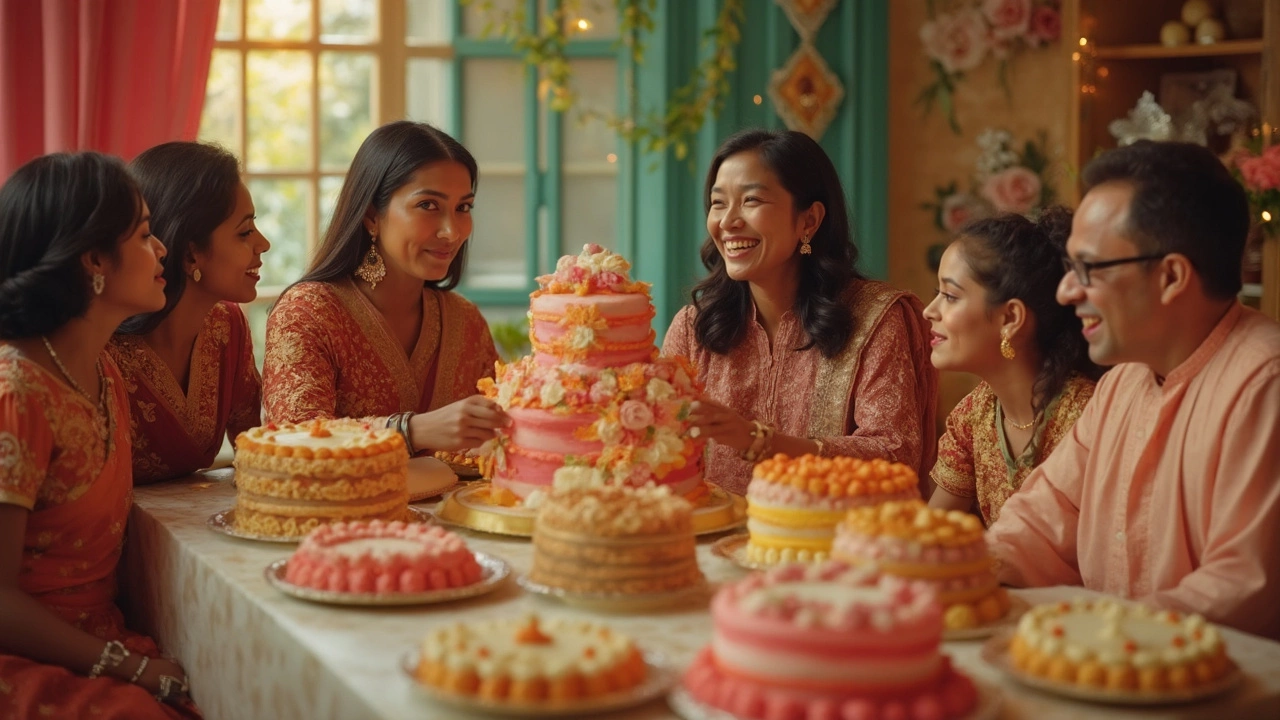
How Language Shapes Cake Culture
Words seriously matter in bakeries. If you think it’s just about flour and fondant, you’re missing half the story. The phrases cake makers use, like "cake eater," help shape the vibe in the kitchen, how bakers see their customers, and even the expectations around wedding cakes.
Bakeries have their own behind-the-scenes lingo. Terms like "crumb coat," "fondant smooth," and "stand mixer burnout" sound totally normal to pros, but might mean nothing to outsiders. When you tack on a keyword with an attitude, like cake eater, you end up drawing invisible lines between the folks who bake and the folks who just show up for a slice.
This language sets a tone. If everyone in the bakery refers to tricky customers as "cake eaters," new staff pick up the habit fast. It’s like a shared inside joke, but it can also breed a kind of us-vs-them mentality. Not all bakeries use this term, but talk to long-time decorators and you’ll find out the vocabulary changes depending on the shop and the crew.
It’s not just about attitude, either. Language also affects how problems get solved. For example, calling someone a "cake eater" might make it less likely you’ll try to listen to their concerns or work things out. It’s a shortcut for venting, but it doesn’t always help fix real issues.
On the flip side, positive language boosts teamwork and makes customers feel welcome. There’s been actual research showing customer satisfaction is higher when staff use open, friendly language. According to a 2023 study by the Bakery Industry Data Group, bakeries with staff who felt respected reported 25% fewer customer complaints.
| Bakery Habit | Result on Culture |
|---|---|
| Using negative slang (cake eater, etc.) | More staff venting, less customer empathy |
| Teaching positive customer terms | Improved teamwork, higher customer satisfaction |
| Mix of old-school & new language | Split feelings, but more flexibility |
If you’re a customer, being aware of the lingo can help you communicate better with cake makers. And if you’re in the kitchen, watch out for language that puts up walls. It’s easy to let slang stick, but it molds how your team—and your customers—see your work.
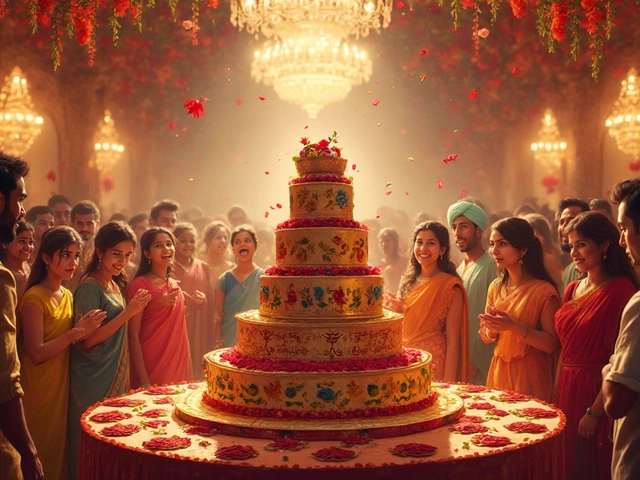
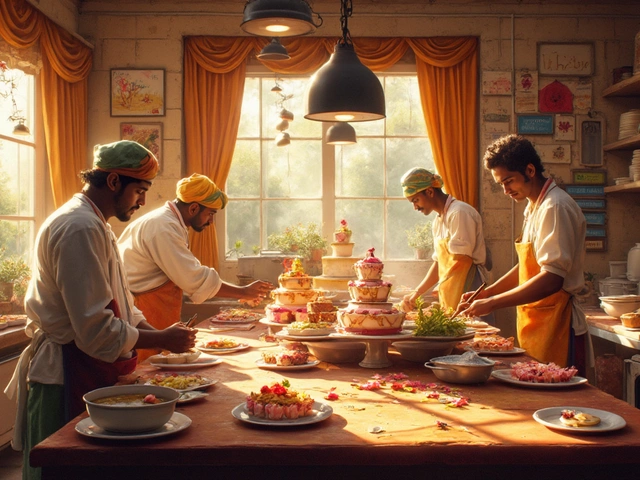

Comments
Post Comment